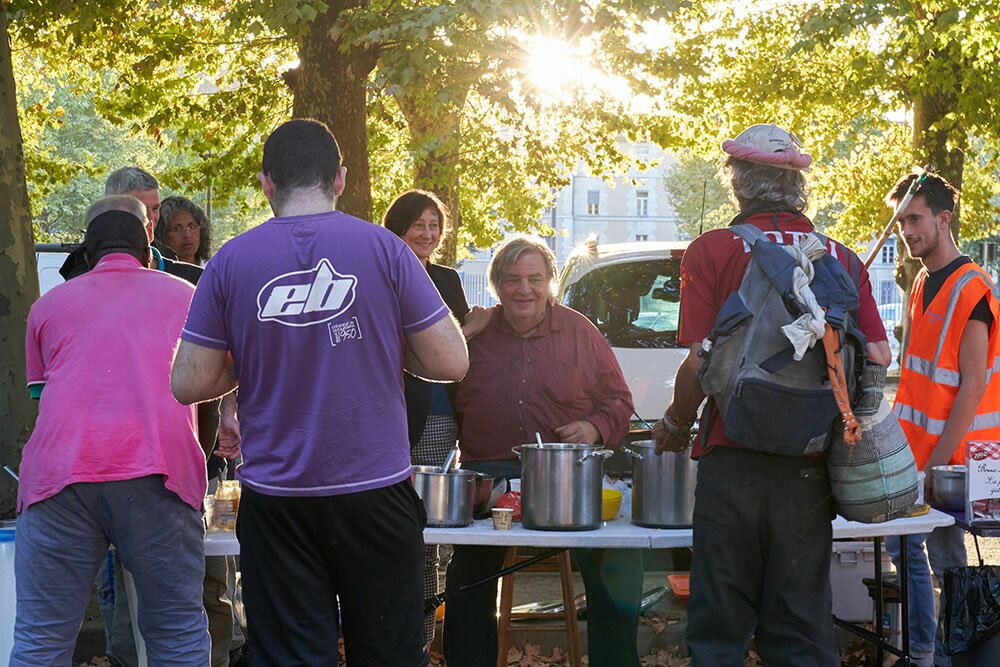We imagine them sitting on a cushion, deeply absorbed in their meditation, away from the chaos of the world… and we are right: most Buddhist practitioners take care to arrange time to isolate themselves in order to pray. and meditate. But not only. Some do not hesitate to get involved and come to the practical aid of others. This is the case for certain disciples, monks or lay people, of Tulku Pema Wangyal Rinpoche, a Tibetan master who has lived with his family in the Dordogne since the 60s. truck to bring hot meals to the poorest people in Périgueux: Maison 2013 was born. Since then, with nearly 24 volunteers, the association supports 80 people in great difficulty and extends its action beyond food. A fine example of compassion in action (1)
« You are not like the others. »
When he founded La Maison 24 five years ago, Tulku Rinpoche already had many humanitarian associations to his credit. The Périgord association joins Casa International, the vast food aid network, of which it has established branches in Brazil, Mexico, Spain, Angola, etc. Having become in a few years a leading player on the solidarity scene in this country, Casa Portugal serves as a model for La Maison 24, which will gently imprint its vision of solidarity on the Perigord associative fabric, that is to say the unconditional donation to anyone who expresses the need, and the application of the “Casa” values: kindness, cooperation, innovation, respect… All this with the help of private donations.
“We are there for people, to provide connection, support, consideration, peace too, because the street is a violent environment. » Palzang
“You are not like the others. This is the phrase that Maison 24 volunteers regularly hear when they talk to beneficiaries who have come to pick up their parcels and have a meal. But what do they mean by that? Here is Eric's answer, who regularly comes to the distributions. “We feel respected. The volunteers are nice, they are interested in us and are not just there to feed us. This is a fundamental point reminded by Palzang, a Buddhist and vice-president of La Maison 24: “I often tell volunteers that we are not here just to give food. That's almost a pretext, even if it's very important to them. We are there for people, to provide a link, support, consideration, peace too, because the street is a violent environment”.
Tuesday is a vegetarian feast!
Maison 24 did not wait long to meet needs other than food aid: school support, conversation classes for migrants and a shared permaculture garden quickly emerged, and the list of services should be expanded. lengthen, thanks in particular to the providential gift of a professional kitchen, in which animal products will never be prepared. Respect for all sentient beings is one of the strong values of the association. Moreover, every Tuesday evening, the beneficiaries are entitled to a vegetarian feast!
If the Buddhist origin of the association is not hidden from new volunteers, it is not put forward either. Discretion is in the DNA of Tulku Pema Wangyal Rinpoche's sangha. Most of the volunteers from the start are disciples and are still part of the pillars of the association, such as Delia, the president, Palzang, Christine, former members of the famous “three-year retreats” for some. After years away from the world, how do they experience this social commitment? “For me,” explains Christine, “volunteering, wherever it takes place, is an opportunity to confront myself with human situations which will show me where I am in my evolution, and what I have or have not couldn't transform into me"

